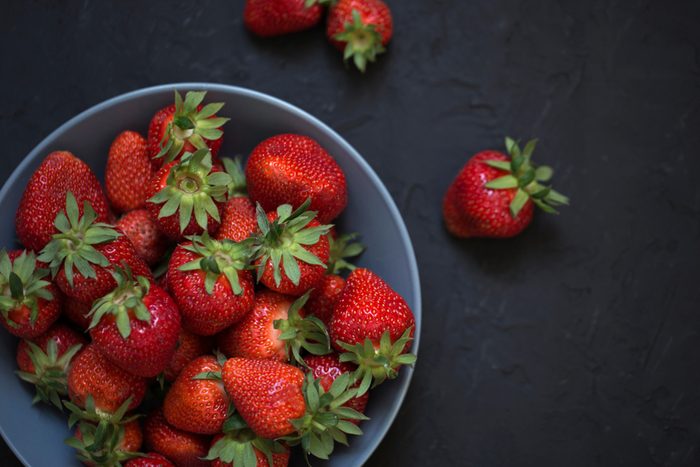
Strawberries
Compared to 70 mg of vitamin C in an orange, a large sweet red berry contains 10.5 mg. Have a snack of at least seven strawberries and you’ll get more vitamin C than if you were to have one orange. Strawberry nutrition also packs a large dose of magnesium and folate, which help to stabilize your blood sugar and keep your heart healthy. These are the signs of vitamin C deficiency you should be aware of.
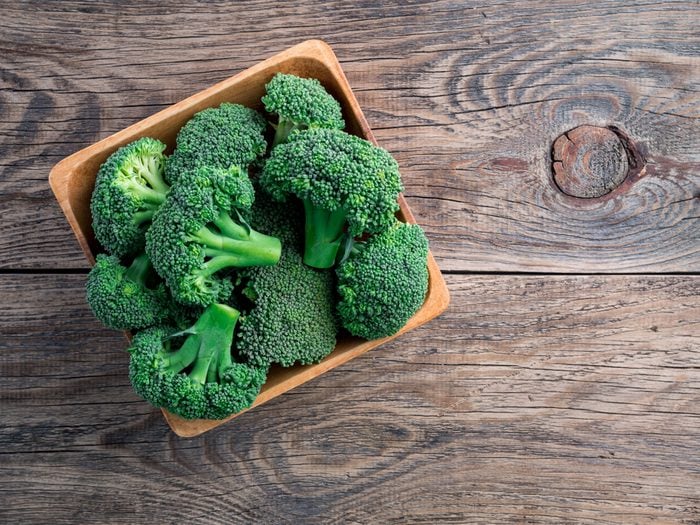
Broccoli
100 grams of raw broccoli contains 89 mg of vitamin C. That’s almost the recommended 90 mg per day. This cruciferous vegetable also contains a healthy dose of vitamin K, which promotes bone health and proper blood clotting. Broccoli is just one of many foods that are way healthier than you might realize.
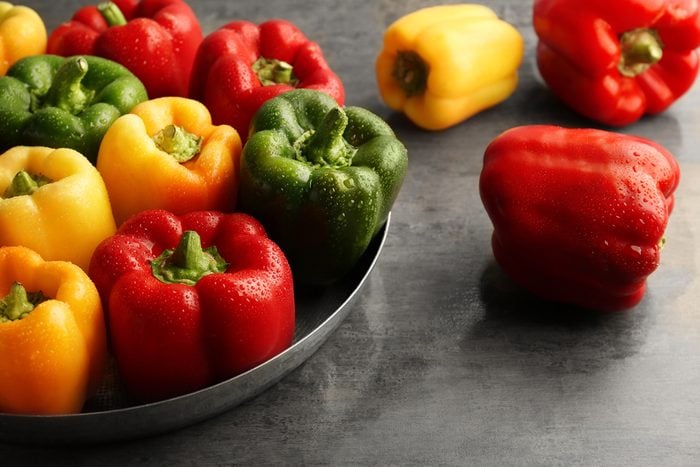
Bell peppers
Red, green, and yellow bell peppers contain nearly triple the vitamin C of an orange, clocking in at 95.7 mg for a green pepper, 152 mg for a red pepper, and a staggering 341 mg for a yellow pepper. Peppers are also a great source of fiber and a very low-calorie snack. Check out some more foods high in vitamin C that are also natural fat burners.
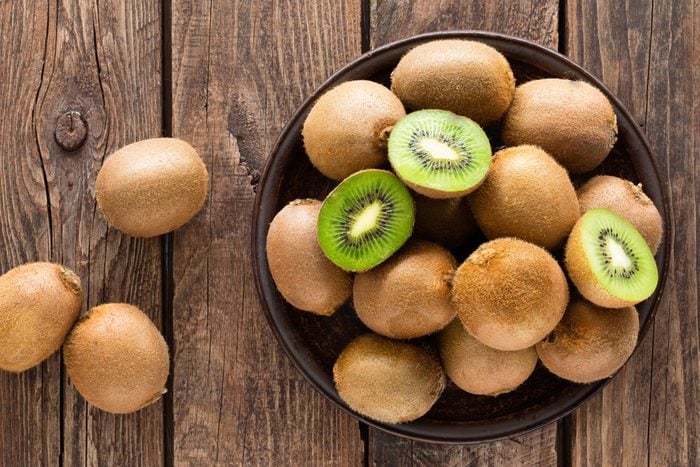
Kiwi
One serving of this little green gem (about two kiwis) boasts 168.8 mg of vitamin C. This superfruit is also rich in copper, potassium, and serotonin, the feel-good hormone that helps improve sleep quality.
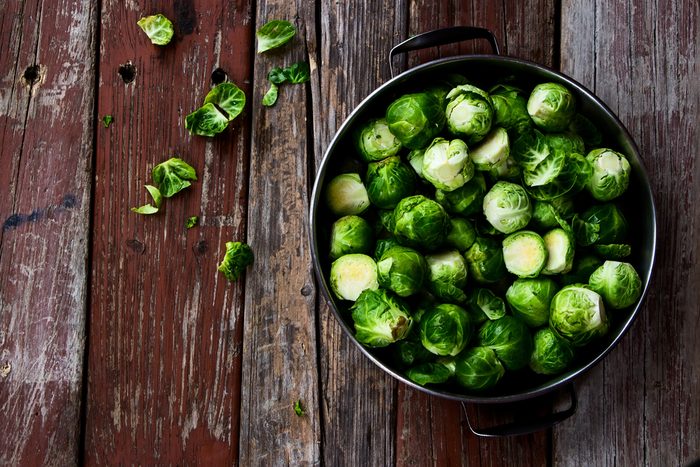
Brussels sprouts
One cup of Brussels sprouts delivers a healthy 96.8 mg of vitamin C. These mini cabbages also are loaded with phytonutrients and fiber that help prevent cancer. If their bitter taste it too much for you, try roasting them to bring out their natural sweetness.

Kale
One cup of this dark leafy green yields 80.4 mg of vitamin C, not to mention twice the daily recommended value of vitamin A and seven times the recommended value of vitamin K. Kale also boasts high doses of minerals and fatty acids.
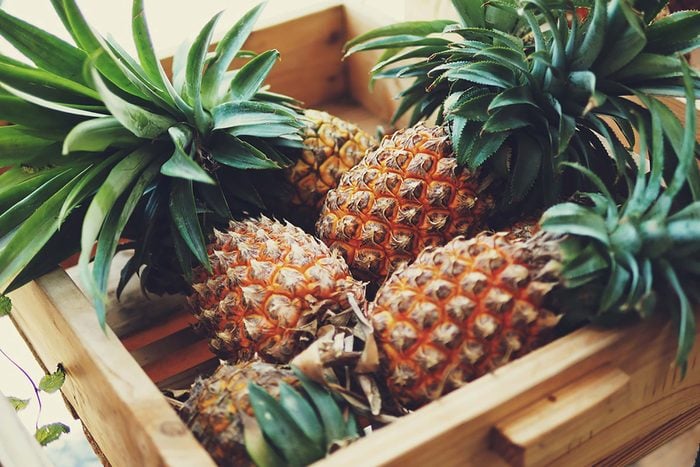
Pineapple
In addition to its 78.9 mg of vitamin C per cup, this juicy tropical fruit contains bromelain, which aids digestion and reduces bloating. Pineapple can also act as a natural anti-inflammatory, reducing swelling after a workout or injury.
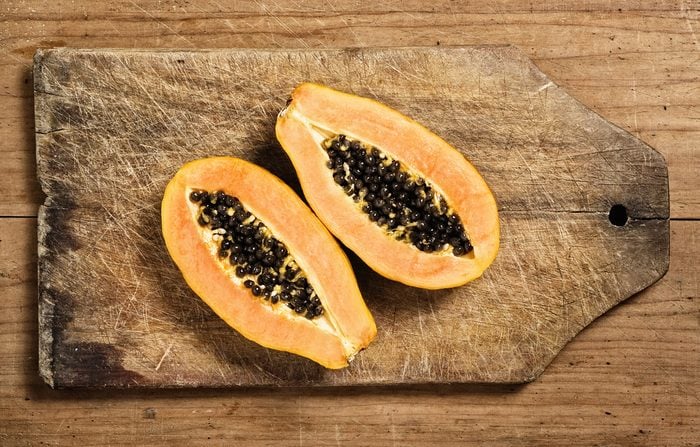
Papaya
One cup of papaya contains 86.5 mg of vitamin C and is known to help strengthen bones, reduce inflammation, brighten skin, and clear your sinuses.
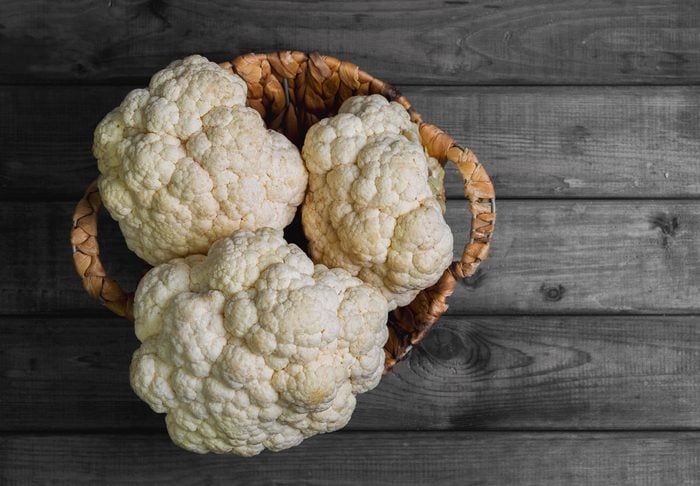
Cauliflower
Cauliflower is not only chock-full of fiber, but one small head also contains 123 mg of vitamin C. Steam, mash, or roast this superfood for a healthy and delicious meal.
